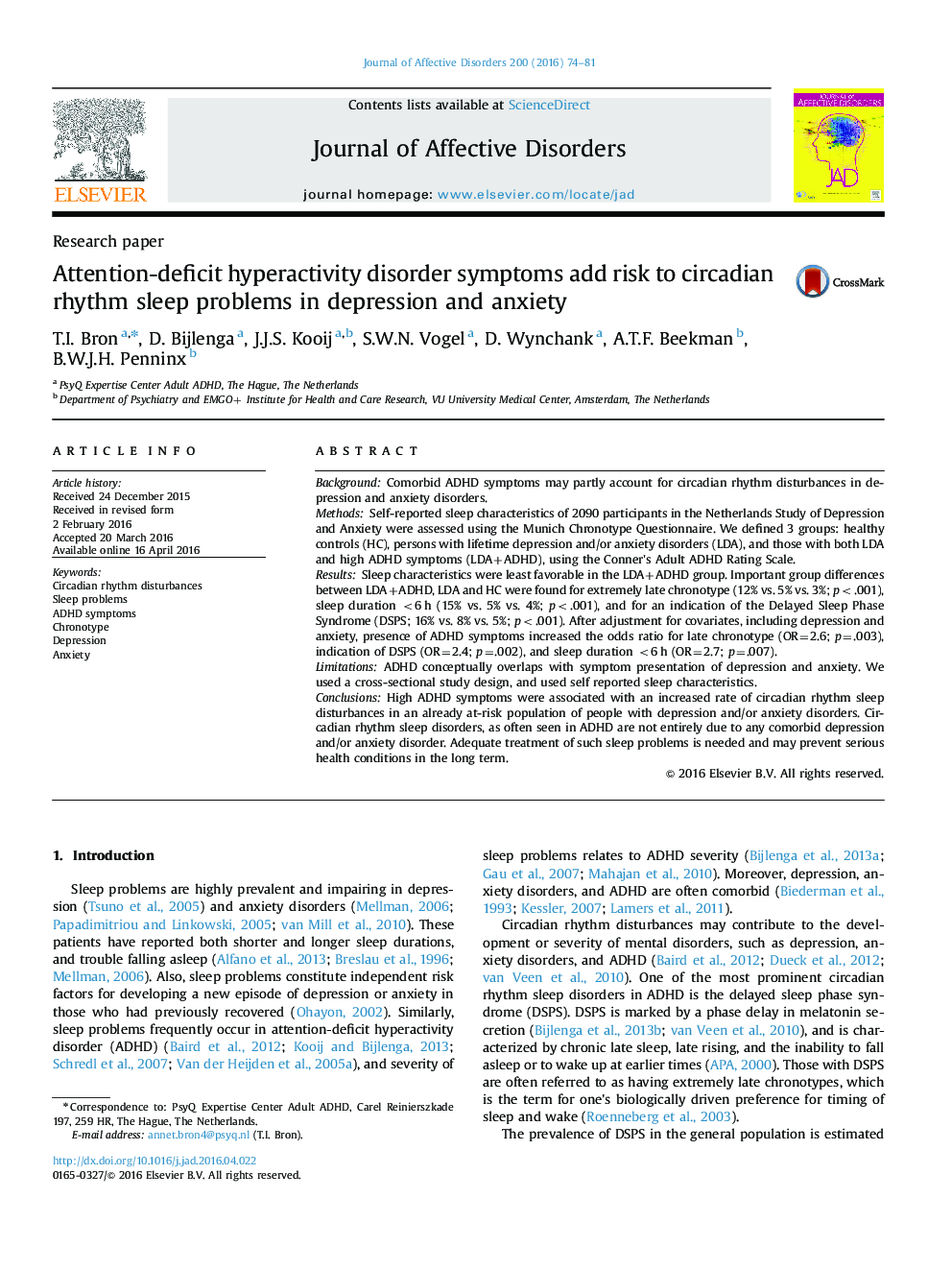| Article ID | Journal | Published Year | Pages | File Type |
|---|---|---|---|---|
| 6230059 | Journal of Affective Disorders | 2016 | 8 Pages |
â¢High ADHD symptoms are associated with increased circadian rhythm disturbances.â¢ADHD has an additive risk for circadian sleep problems beyond depression and anxiety.â¢People with high ADHD symptoms are prone to late and short sleep.â¢Treatment of sleep problems may help to prevent serious chronic health conditions.
BackgroundComorbid ADHD symptoms may partly account for circadian rhythm disturbances in depression and anxiety disorders.MethodsSelf-reported sleep characteristics of 2090 participants in the Netherlands Study of Depression and Anxiety were assessed using the Munich Chronotype Questionnaire. We defined 3 groups: healthy controls (HC), persons with lifetime depression and/or anxiety disorders (LDA), and those with both LDA and high ADHD symptoms (LDA+ADHD), using the Conner's Adult ADHD Rating Scale.ResultsSleep characteristics were least favorable in the LDA+ADHD group. Important group differences between LDA+ADHD, LDA and HC were found for extremely late chronotype (12% vs. 5% vs. 3%; p<.001), sleep duration <6Â h (15% vs. 5% vs. 4%; p<.001), and for an indication of the Delayed Sleep Phase Syndrome (DSPS; 16% vs. 8% vs. 5%; p<.001). After adjustment for covariates, including depression and anxiety, presence of ADHD symptoms increased the odds ratio for late chronotype (OR=2.6; p=.003), indication of DSPS (OR=2.4; p=.002), and sleep duration <6Â h (OR=2.7; p=.007).LimitationsADHD conceptually overlaps with symptom presentation of depression and anxiety. We used a cross-sectional study design, and used self reported sleep characteristics.ConclusionsHigh ADHD symptoms were associated with an increased rate of circadian rhythm sleep disturbances in an already at-risk population of people with depression and/or anxiety disorders. Circadian rhythm sleep disorders, as often seen in ADHD are not entirely due to any comorbid depression and/or anxiety disorder. Adequate treatment of such sleep problems is needed and may prevent serious health conditions in the long term.
